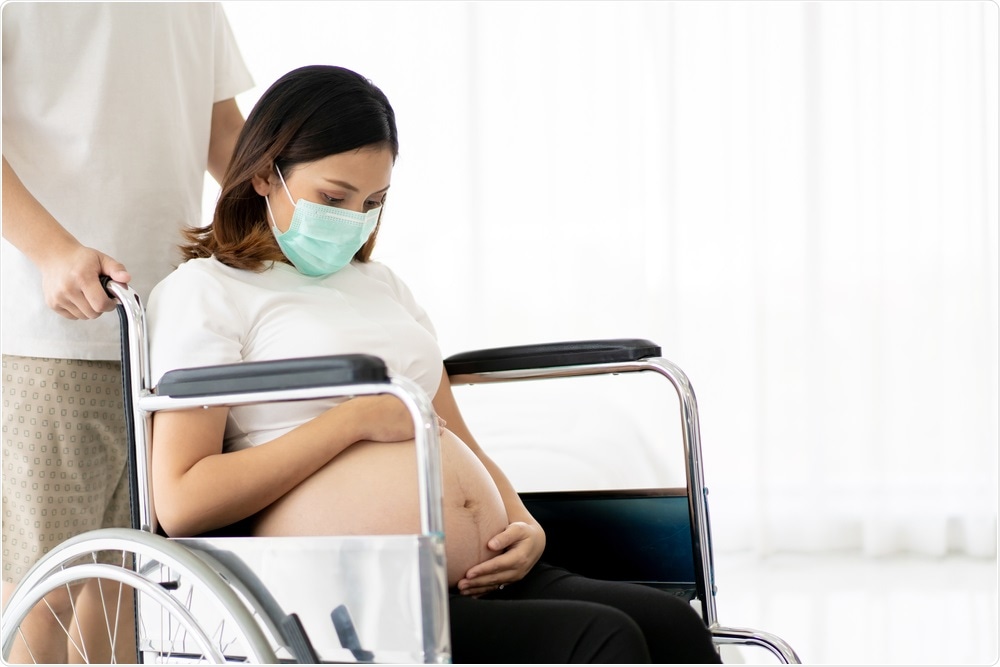The coronavirus disease 2019 (COVID-19), which is caused by the severe acute respiratory syndrome coronavirus 2 (SARS-CoV-2), has caused over 4.5 million deaths and infected over 213 million worldwide as of August 24, 2021. Pregnancy is a special condition in which COVID-19 is thought to pose a higher risk to the mother in terms of disease severity and the need for intensive care.
 Study: Pregnancy With SARS-CoV-2 Infection Complicated by Preeclampsia and Acute Fatty Liver of Pregnancy. Image Credit: DG FotoStock / Shutterstock.com
Study: Pregnancy With SARS-CoV-2 Infection Complicated by Preeclampsia and Acute Fatty Liver of Pregnancy. Image Credit: DG FotoStock / Shutterstock.com
Background
Pre-eclampsia in pregnancy is a condition typically associated with high blood pressure. Moreover, pre-eclampsia can lead to hemolysis, elevated liver enzymes, and low platelet (HELLP) syndrome, as well as AFLP and acute kidney injury. AFLP is among the least common adverse effects of pre-eclampsia; however, when it does arise, it often occurs in the third trimester or soon after birth and can be life-threatening.
Pregnancy increases the risk of severe COVID-19, especially in the presence of other chronic or underlying illnesses. In the current study, one pregnant woman who was carrying twins developed both pre-eclampsia and AFLP.
The case study
The pregnant woman in the current study was a primigravida aged 27 years, with a di-chorionic di-amniotic twin pregnancy. At 35 weeks, the patient presented with abdominal pain of two hours duration that was preceded by a low fever of four days, with a dry cough but no fever.
Upon admission, the patient’s blood pressure was elevated and proteinuria was detected. Liver function tests were abnormal.
The patient was then admitted into an isolation ward after the diagnosis of COVID-19 was confirmed. She was considered to have atypical HELLP with acute kidney injury. The patient was then put on magnesium sulfate to prevent eclampsia and prepared for delivery of her twin babies.
Two hours after her admission, the patient had spontaneous rupture of the membranes, with thick meconium-stained liquor. Simultaneously, the cervix showed signs of early effacement and dilation.
The patient then underwent an emergency Cesarean section, with two-term babies weighing 2 and 2.1 kg, respectively. Both twins had a normal appearance, pulse, grimace, activity, and respiration (APGAR) scores. Additionally, both twins were negative for COVID-19 within 24 hours of delivery.
At 12 hours post-operation, the patient showed worsening sensorium and signs of reduced oxygen saturation in room air, with rising pulse rate and low blood sugar. A chest X-ray showed bilateral opacities.
The patient was then transferred to the intensive care unit (ICU) with a tentative diagnosis of AFLP and multi-organ dysfunction. With supportive care, she began to improve.
On postoperative day 7, the patient’s oxygen saturation was greater than 95% in room air, thus allowing for her to be transferred back to the general isolation ward. The patient was discharged home the next day.
Two weeks after her hospital admission, the patient’s liver and kidney function tests had returned to normal.
Comorbidities that resemble HELLP
Pre-eclampsia is present at high rates in severe and critical COVID-19, perhaps because of the altered expression of the angiotensin-converting enzyme 2 (ACE2) on the cell surface and at the maternal-fetal interface.
Like COVID-19, pre-eclampsia is a microvascular pathology that can lead to a state of hypercoagulability. This hypercoagulability may cause a cascading effect on the disease state, thus exacerbating its severity.
AFLP, which is a disease that may have a fatal outcome, often presents in the third trimester of pregnancy. This condition is more likely in nulliparas, multiple gestations, women with pre-eclampsia or HELLP, or those with a previous history of AFLP.
Some experts believe that pre-eclampsia, HELLP, thrombocytopenic purpura, and AFLP occur along a continuum of severity and clinical features. The symptoms of AFLP are non-specific, which may make it difficult to differentiate this disease from HELLP, viral hepatitis, or cholestasis of pregnancy without specific tests.
AFLP is a condition associated with greater liver injury and clotting abnormalities relative to HELLP syndrome. Hepatic injury is observed in about 30% of pregnant COVID-19 patients.
Women with respiratory failure who develop severe hypoxemia are at greater risk of liver derangement, as are women who have drug interactions, septic shock, and multi-organ dysfunction. Direct viral injury has not been observed in COVID-19; however, with severe disease liver dysfunction, this condition is often present.
What is the conclusion?
“This case illustrates the complexities of COVID-19 in pregnancy, the overlap of symptoms, and the increased severity of associated co-morbidities. Health care workers should be extra vigilant in cases of pregnancy with preeclampsia or existing hepatic disorders, as the synergistic effect may lead to worsening of the patient, AFLP and multiorgan dysfunction.”